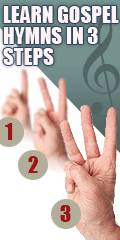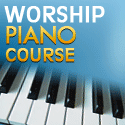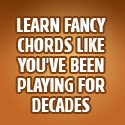Phone Interview with Scott MacIntyre
Apr 5th, 2012 by admin
It is an honor to be able to interview Scott MacIntyre, an American Idol finalist (season 8, 2009) on the release of his book today entitled “By Faith, Not By Sight”. Read on to find out more about Scott’s unique gift, his passion and the thing s that keep him going and overcoming challenges despite visual impairment and a life-threatening kidney condition.
Les: I understand that you started playing piano since 3 years old, and you were taught by a neighborhood piano teacher. What is the influence or impact of that neighborhood piano teacher on your music career?
Scott: My earliest memory of playing the piano happened when I was about 3 years old. My parents would put me to bed with cassette tapes to listen to, of Disney music, or church music, or Phantom Of The Opera, or some of my favorite music as a kid. Instead of falling asleep, I would sneak out of bed and walk over to our old upright piano and start figuring out the melodies I had been hearing on the tapes. My parents could tell that there was something unusual going on. They knew I had a passion for music from that very early age. So they started me with a neighborhood piano teacher. My first teacher actually had a big impact on me. I talk about a lot of different teachers that I had in my book “By Faith, Not By Sight”, but my first teacher really focused on playing by ear, and then later I got into the Suzuki method and then eventually into the traditional Classical method. But my first teacher focused a lot on rhythm, and helping me hear different rhythms, different types of syncopation in the music of others. And so as I grew older, and as I listened to the music on radio, or the music in church, I began to notice patterns and certain combinations of rhythm and melody and harmony, and I started to incorporate that into my own songwriting.
Les: Besides piano, you also play guitar, drums, percussion and bass; and yet you suffer from tunnel vision. How does your tunnel vision affect your playing of the musical instruments?
Scott: I’ve been almost completely blind since birth. My vision is kind of like looking through a coffee straw at the world. It’s a little pinhole of vision, and so it’s not helpful for travel, or being on stage. But I do have that little tiny pinhole vision. So growing up, I knew that there are things that I would never be able to do, like play a sport, or drive a car, or see when a girl is smiling at me. But I had music instead, and music was my passion. When I was first starting out with the piano, I didn’t even know how I was going to learn to play music if I couldn’t sight-read the sheet music in front of me. But what I discovered was, if a piano professor put the music on the tape for me, I could listen to the left hand and memorize that, and then listen to the right hand, and memorize that part. And then once I had them both memorized, I would work very hard on putting them together. One thing that was always difficult for me was a large leap from one note to another note very far away from the first note. I used to feel my way all across the keys very timidly until I found the right note but I remember one piano teacher that taught me a lot about music, and a lot about life as well. One day, I was playing a Beethoven Sonata that had a big jump from one note to another, and he said, “Scott, I don’t want you to feel the keys anymore. I want you to take your hand and lift it off the keyboard, and make a nice beautiful arch across the keys in the air, and then when you come down on the other side of that arc, I want you to hit the right note exactly on.” And I thought to myself, “How is that going to work?” He was asking me to do something that I had never done before, and it was definitely out of my comfort zone! But he insisted that I could do it, and so I tried it. I played the first note. I took my hand off the keyboard and reached to the air, and when I came down I hit the note, and it was a completely wrong note. I totally missed the note! But I tried it again, and again, and again, and pretty soon, I started hitting the right note every single time.
Les: It’s really “By Faith, Not By Sight”!
Scott: Exactly. It’s a parallel to “By Faith, Not By Sight”. Even though I couldn’t see where I was going, he wanted me to have faith that I could do it, and believed that it was possible, guided me through all the failure and all the times of practicing until I could actually do it.
Les: You have received a lot of awards and won many competitions over the years. What are some factors that drive you to be a determined person to achieve your goals?
Scott: I think it started with my parents encouraging me to take risks. When I was very young, I used to love going to the beach. I grew up in California, not too far from the beach. My mum would take my brother, sister and I down to the beach, and we’d play in the sand and run around, but I would always run holding to mum’s hand. And one day, about that same age, when I was about 3 years old, she said, “Scott, you know, you can run by yourself.” It was a new thought to me. I said, “How can I do that?” She said, “Well, it’s just the same as running with someone else, except you just do it on your own.” She promised she would tell me if anything was in my way. She promised she would tell me that the path was clear. And that I could run as fast as I wanted to. It was really hard the first time. I was scared that I would run into something. I was scared that I would trip. But I started to run, and I started to go faster and faster and faster, and she said, “There is nothing in front of you, Scott. You could run as fast as you want.” And pretty soon I was running full speed with the winds rushing past me. And it was the most exhilarating feeling of my life up until that point. It was the same when I learned to ride on a bike as a blind person. It was the same when I learned to ski as a blind person. And I think overcoming each one of those challenges give me more and more confidence to overcome the next challenge, and the next challenge after that. So when it came to wanting to have a career in music, much like not knowing how to play the piano when I was young without sight, I didn’t know how I would compete in the very visual entertainment industry without sight. But I believed it could be done. I always had a dream of being an entertainer. And that belief guided me through the pitfalls and through the challenges. I have failed, I have tried different things, I have learned from my mistakes, but I never doubted for one second that I could reach for my dreams. And now my dreams are reality.
Les: You were diagnosed with kidney failure in 2005. In a life-threatening situation as such, what went through your mind at the time? What did you feel as being the most important in life?
Scott: I was devastated when I found my kidneys were failing. I had never talked about my kidney failure in the media much, and I had never talked about it on American Idol. So this is a big part of the book, something people may not necessarily know about me. When I was 19 years old, I found out that I had stage-4 kidney failure. It was a shock to me. I felt like I had already come through so much dealing with my disability, and learning to overcome my disability and live life in spite of it. But now I had a whole new challenge to deal with that I was not familiar with. There was a lot of uncertainty in my mind, a lot of confusion. I remember the day after I found out – I was in the doctor’s office – I heard the daunting word for the first time, “You need a kidney transplant.” I did struggle with that reality at first. But as I went through that time, I realized again I had a choice. I could either trust God to bring me through that, or nothing! There was nothing else for me to hold on to because my physical life was actually in danger. And I remember it getting so bad that I eventually got so sick I couldn’t even play the piano in my own living room. That was the hardest thing for me of all because I had played piano all my life. Music is how I expressed myself. Music is how I let my emotions out. And to not to be able to do that anymore literally crushed my spirit. I ended up on emergency dialysis for about a year, and was tied to a dialysis machine three times a week for hours and hours at a time. I didn’t see any conceivable way that I would be able to tour again or perform out of state, let alone be it on American Idol or be it on any competition like that. But then in August of 2007, my former piano teacher’s wife donated her kidney to me and saved my life. I was so grateful to have her give me a gift like that. There are no words to describe how I feel to have someone literally give a part of themselves so that I can keep on giving to the people around me with my gifts and talents. I have told her “Thank You” many times, and her only response is, “I’m glad it was something I could do.” She is very humble. She wanted to do it so much. She just wanted me to be able to live and to be able to make music. She gave me a truly great gift. You know, it was less than a year later after my kidney transplant that I ended up on American Idol. I was just grateful to be on any stage, let alone the American Idol stage. She is doing great, and I am doing great. I call her in August every year. We remember that common bond that we have.
Les: Obviously you have a lot of people around you who are very supportive of you.
Scott: Yes. My family was very supportive of me during that hard time with the kidney failure. They have always supported me in my music and my career. They have always believed in me from the very beginning, especially my mum. And now I have a wife as well, and we got married last August. She gets to travel with me and be a part of me in everything I do. So, it’s really exciting. I have a great family. I’m thankful for that. And God has blessed me with amazing people to work with as well. The book publisher called Thomas Nelson – they are one of my favorite publishers – they’ve been a joy to work with. We are working on some great promotion to do with the book. We are giving away music with the book. If you buy two books, we are going to give another one to a transplant center to inspire others as they go through the transplant process. We even have a phone call with me, and we have a private concert by me if you buy a certain number of books. We will have details on all that.
Les: What is one most important thing that you would like the readers to get out of your book?
Scott: I would like my readers to walk away from this book knowing that no challenge in life is too great, no heartache is too painful, and no short-coming can ever, ever stop you from reaching your biggest dreams. I want people to know that it’s ok to be in a place where you feel hopeless, but I want people to cling on to hope in those times, and to have faith that there is light at the end of the tunnel, and there is a reason for what they are going through. You know, I’ve been through the best that life has to offer, and the worst that life has to offer. And I wouldn’t wish those things on anyone, because they are very hard to go through. But at the same time, I would not change a day or any of it.
Les: How would you describe yourself in your own words, and how do your character traits affect the music you do?
Scott: I am a 6-foot-2, dark haired person who happens to be blind! I am a recording artist, I am a Marshall scholar, a Fullbright scholar, an American Idol finalist, an inspirational speaker, and now I’m so excited to be an author. And I think the thing for me is, whether I’m doing a CD, whether I’m writing a book, whether I’m giving a concert or giving a keynote speech, it all comes down to communication. I want people to be inspired by my story and be able to look at the things I’ve overcome, and the things that I’ve accomplished in spite of those obstacles, and apply that to their own lives, and be able to reach for their own goals and dreams.
Click here to go to Scott MacIntyre’s site.





